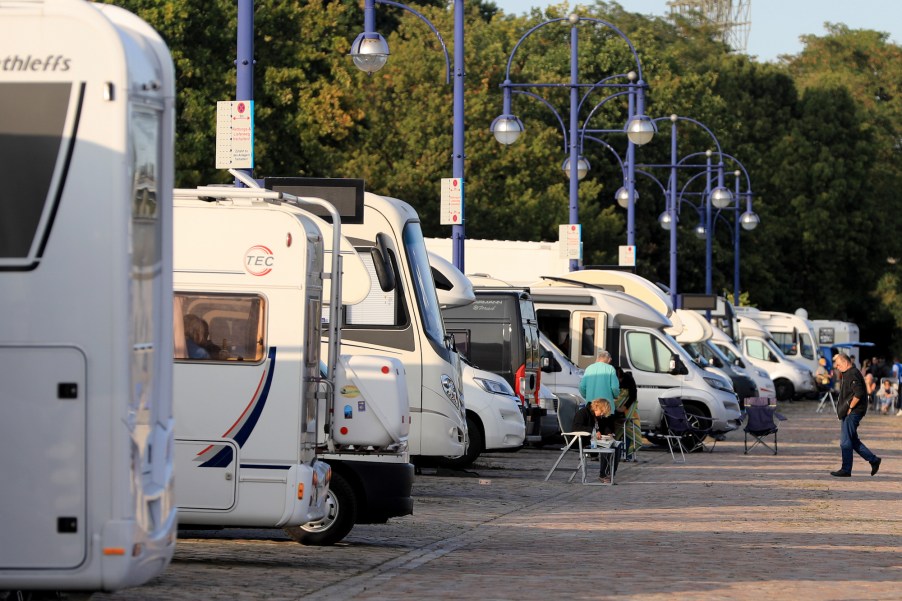
How Big of a Down Payment Do You Need to Finance an RV?
With the coronavirus pandemic ongoing, a recreational vehicle — also known as an RV, camper, motorhome, or travel trailer — can allow you to travel comfortably and maintain social distance from others. You eliminate the need for hotel rooms, restaurants, and restrooms on your travels with a camper. According to the RV Industry Association, 11 million households in the United States own a recreation vehicle.
If you’re considering purchasing an RV soon, you might want to know how to finance one. We’ll explain how, along with how much you’ll need for a down payment.
RV loans
As you can with cars, you can take out an RV loan on a new or used vehicle. You can use long-term financing to buy a recreational vehicle. According to the consumer site BankRate.com, the price can range from $10,000 to more than $1 million. Most buyers need to finance that amount.
Numerous lenders offer loans for new and used campers, whether at a local bank, credit union, or online lender. Sometimes financing is available at the RV dealership. Often, the vehicle is its own collateral for the loan, with no additional security required.
The terms of repayment usually range from 10 to 15 years, but some lenders will extend loans up to 20 years.
How it works and the down payment
As with any other loan, you apply. And once you’re approved, the lender provides the money to buy the RV. You’ll agree to terms on how you’ll repay it, the interest rate, and time period of the loan. These are secured loans that require collateral, which is usually the camper you’re purchasing.
Before you start, know how much you can afford to finance per month so you don’t break your budget. You’ll also want to know your credit score. If your score is in the mid 700s or higher, you have a better chance of being approved and receiving a better rate.
Also, compare offers. Just because one lender approves you doesn’t mean you can’t see if there’s a better offer out there. Shop and compare to get the best rate. Also, with some lenders, you might be able to negotiate for better terms.
Most lenders who offer RV loans require at least 10 percent of the purchase price as a down payment. Others might require 20 percent. A larger down payment will reduce your monthly payments over the life of your loan and might even earn you a lower interest rate.
A big investment
Buying an RV can be a huge investment. It’s important to find the right one for you. It should be worth the loan you’ll have to take out to buy it.
It’s important when shopping for a loan to find a reputable lender. With a little patience and online research, you should be able to find lenders with good reputations and start there. You can even pull quotes from some of those lenders and put together all the costs involved with your potential purchase so you’ll know exactly what you’re getting into.
Keep in mind the rate for financing an RV might be higher than that of your car loan. Motorhomes are luxury items, and lenders are more cautious about such loans because when times are lean, people tend to get rid of their luxury items. For that reason, collateral is required.
However you select your RV and secure lending, know some basic information about the vehicle before you buy. Know its age, value, and mileage. Used motorhomes can seem like great deals, but they often come with higher interest rates because of the cost of ownership over the loan’s life.


